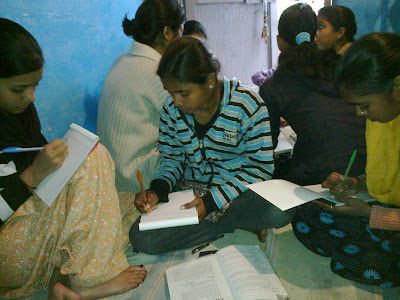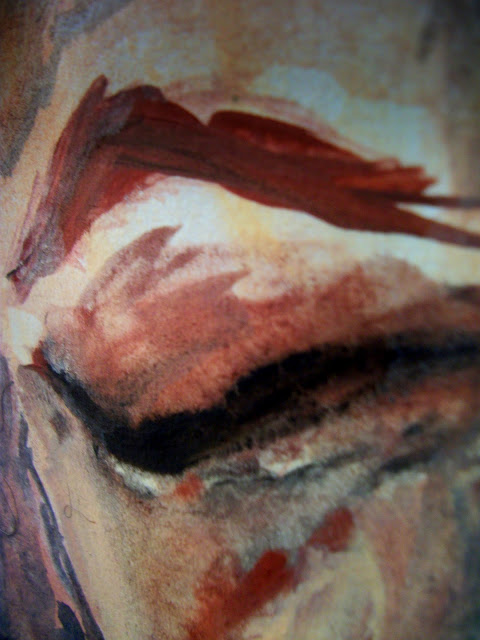What jumps to your mind? A blue tongue of a Bunsen burner?
For me, a phenomenon jumps to mind.
I was witness to a phenomenon.
For me, a phenomenon jumps to mind.
I was witness to a phenomenon.
Don’t mistake me to be pyrophobic
to be uttering words with such a solid emphasis, but it was a phenomenon. It was the sort of flame that I have not
seen this close, this destructive, this completely capable of altering my
insight. Small scale was a word I would not use, even if it seems appropriate.
It wasn’t small scale for me. For me, it was a phenomenon.
The day started uninteresting
enough. I was stressed for my final exams, and studying was going nowhere.
Unable to juggle my academics, being home after so many days and the radio
show, I was clearly collapsing under the strain. I gave up trying to reason
things out and decided to take a nap in the hopes that it would alleviate the
mild signs of stress that were beginning to descend, hallmarks of the final
season. I woke up late and grumpy. I wasn’t exactly saying thanks to anybody
this season. Exams? No thanks. There was nothing to be thankful for.
I woke up to a phone call. By the
time the mobile phone was off, I heard mother: ‘there seems to be a fire’. I
rushed to the balcony. A fire was raging outside, spitting up flames and smoke
was roping its way to the night sky. It was a sight to see. I stood up on a
balcony chair for a better view as I heard brother repeat that he was scared. The fire was truly terrifying. I couldn’t ascertain if it
was spreading, my brain was just numb: all I saw was a definitive presence of
the fire. The chair was not balancing me well enough, and as I wobbled in the
night air, I heard strict instructions.
‘Hey, get down!! Get down NOW and
head out to the front. We’re trying to control the fire.’ It was a Police
Officer with his flashlight. As I rushed inside to let everyone know, my heart
was throbbing.
‘Quick, fire, evacuate.’ What do
you take with you?
What becomes important? In that
one second, everything had changed. As I sensed the importance of the moment,
nothing mattered more than family. My family, a cell phone and—at the last
instant, a camera. That’s all that mattered as I rushed out of the house,
following many other residents with backpacks, running away. The moment was
eerie. There was only a raging fire in the background and small lamp posts. The
rest was darkness and the babble of people. The rest was all of footsteps and
shadows. Faces didn’t matter, what mattered was being calm about this.
Many people walked away, in many
directions, huddling in groups. But the interesting thing was—there was another
group. Another group of people that wasn’t quite running away. They lingered.
They lingered with fire in their blood. They lingered to witness something they
knew was not ordinary. They wanted to stay and see what happened. They were not
the confused lot; they were at the forefront, spectators of the fire with their
mobile phone cameras and video recorders. The police had cordoned off the area,
but they tried their best to stay within limits as the terrifying evening
unraveled itself. These everyday people became journalists in that moment: they
became the photographers and the media professionals. And the firefighters
became the true heroes worth watching.
As I tried to push myself into
the bunch that lingered, I thirsted to record everything. It was a new, acute
sort of excitement—a realization that this wasn’t an everyday phenomenon, and
that this was worth recording. I didn’t feel a sense of danger, for I knew I
was at a safe distance. There was only that much I could do. I couldn’t run
into the fire and help them calm it, but I could at least witness it from a
safe distance. Now, I was completely awake and caught up. The adrenalin rush
induced by the gripping atmosphere as we collectively stood witness was
something beyond description. I was more than alive, I felt acutely conscious
of every tiny detail. I knew the people around me without knowing them, my mind
memorized where all the apartments were, what was burning, and how everyone was
moving. The atmosphere was charged and shifting. The undaunted fire was
recorded from various different angles until the police sternly warned me to
stay back.
As the fire got slightly out of
hand, we were further instructed to completely evacuate even the lawns and move
to the high school ground next door. The cold night air held uncertainty as
people shifted about, talking loudly. The parking lots were full of people. As
we rushed to the car to get out of here, we heard that there wasn’t a way out
for cars. Forced to park them in our lots, we stood around, waiting for further
instructions. The Sheriff’s car was here, and the fire truck was flashing its
bright lights in the distance. I suddenly felt lonely, even with family. If the
fire spread, it would hit my apartment in minutes and everything that we have
ever bought could be reduced to ashes within seconds. The fire now was a
fierce, undaunted orange glow in the distance, blazing off the rooftops—that
was all I could see. I moved to the high school grounds for a better view, simultaneously
updating my facebook and twitter with updates of what was happening. It was not
a foolish thing to do. I wanted the world to know currently, this part was not
safe. Please, stay away. It was the inner journalist in me awakening.
I watched the fire blazing from
the grounds, now from a farther distance. It was all a nebulous glow. I only
felt the cold night air settle on my skin and make me shiver. I shivered not
just with the cold, but also in fear. My brother and I had split apart here. I
was looking for him. He called my cell phone.
‘Come up to the stadium, you can
see much better from here. You can see everything that’s happening.’ I took the
cue and rushed there with the rest of the family. The stadium held only a
handful of people who seemed to have discovered its benefits. They were high
up, privileged by a vantage point that unraveled the entire dynamic scenes
before them. It was something that looked like it was from a movie.
Smoke everywhere. The fire truck,
the firefighters. The hoses and the water. The endless fire engulfing and
burning the wood down to ashes. Everything was visible here, a panorama, a
terrifying landscape unlike anything I had ever seen. As I stood there, high up
with a dozen others, I felt I was part a shared fate. As the scene before me
changed from millisecond to millisecond, clearly visible and dangerous, I
recorded it all. It was something that was truly unfortunate, but an
unforgettable experience nonetheless.
The cold night air hit us as we stood high up there, in a solitary world that
seemed to be somehow distant. We were spectators. My hands fumbled in the cold,
but I was beginning to grasp the severity of the situation. We stood there till
the fire was calmed a little. There was such insight to the moments I stood
there. Many, many thoughts flashed through my mind. I perceived life as a gift.
I felt special. I felt fortunate. I felt fear. I felt insecure. I felt thrill. I felt anxiety. I felt awe.
As the night air became a blur of
smoke, I knew the fire was calming. The police had cut off the electricity connection;
all apartments were bathed in darkness. Multiple phone calls were visiting us
and puncturing my involvement. A kind friend offered to be host. We were all
shivering in the cold, and there was nothing more we could do. We walked to his
house, away from our apartments, shaken by how unbelievable this evening had
gotten.
A while later, as I calmed my
nerves to Hindustani music and tea like nothing had ever happened, I looked at
myself. I was replaying the photographs I had taken just now, they were
reminding me how fragile life was. And just this afternoon, I had been
thankless for my situation, my existence—worried about exams. My perception was
so shallow. Right now, I was simply grateful to be alive and unaffected, as
must have everybody in our apartment.
I’m back home now. It’s been five
hours since the fire. It’s nearly midnight. The power is back. But the damage
is apparent. My internet is not working. The parents are calling Vonage phone
connection. There is a deathly calm, like an aftermath. A couple of police are
hanging around. And I know that most of us have gone home.
Many people proved to be
courageous tonight, and I’m proud of how they’ve behaved. I’m thankful for how
nobody was hurt, and how nobody died. I am thankful for the immense courage of
the firefighters. But most of all, I am thankful that everyone who matters to
me is alive. Sometimes I forget that that—just that, is enough for a lifetime.
I’ll not forget this evening.
Update: The cause of the conflagration was a kitchen fire that engulfed and invaded an apartment. The fire massively spread to the neighboring apartments soon afterwards. Nobody suffered injuries, the only injury is to property, thanks to the timely manner in which the fire was handled by the fire department. I'm grateful to them. The videos I took were released to ABCNews Channel and aired.






















